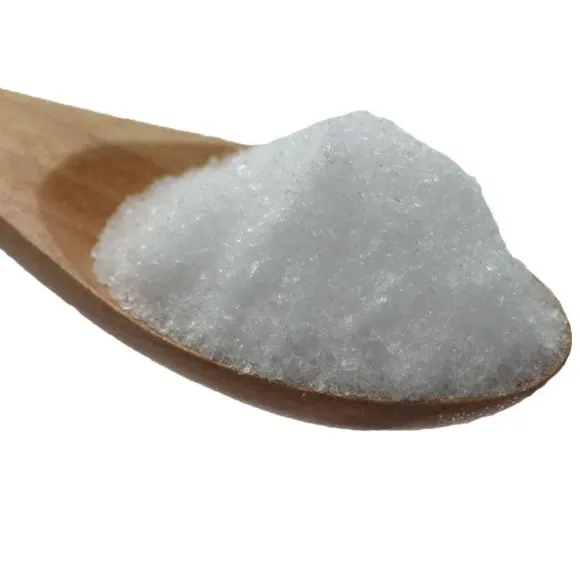Warning: Undefined array key "title" in /home/www/wwwroot/HTML/www.exportstart.com/wp-content/themes/1198/header.php on line 6
Warning: Undefined array key "file" in /home/www/wwwroot/HTML/www.exportstart.com/wp-content/themes/1198/header.php on line 7
Warning: Undefined array key "title" in /home/www/wwwroot/HTML/www.exportstart.com/wp-content/themes/1198/header.php on line 7
Warning: Undefined array key "title" in /home/www/wwwroot/HTML/www.exportstart.com/wp-content/themes/1198/header.php on line 7
Nov . 06, 2024 11:29 Back to list
The Effects of Aspartame Metabolism on Human Health and Body Functions
The Role of Aspartame in the Human Body
Aspartame, a low-calorie artificial sweetener, has been a topic of heated debate since its introduction. Found in numerous diet soft drinks, sugar-free desserts, and various food products, aspartame is approximately 200 times sweeter than sucrose (table sugar), allowing manufacturers to create low-calorie alternatives without sacrificing sweetness. But how does aspartame function in the body, and what are its potential effects?
Breakdown and Metabolism
When ingested, aspartame is broken down into its constituent amino acids phenylalanine, aspartic acid, and methanol. The average person metabolizes these components efficiently. Phenylalanine, an essential amino acid, is used by the body to produce proteins and neurotransmitters, while aspartic acid, a non-essential amino acid, plays a role in energy production and the synthesis of other amino acids. Methanol, in small amounts, can also be metabolized by the liver; however, it is important to note that the levels present in aspartame are significantly lower than those found in many fruits and vegetables.
For most people, the consumption of aspartame is safe, as these components are naturally occurring in many foods. However, individuals with phenylketonuria (PKU), a genetic disorder, must avoid aspartame because their bodies cannot metabolize phenylalanine effectively, leading to potentially toxic levels in the bloodstream.
The Controversy
Despite its approval by food safety authorities like the FDA, WHO, and EFSA, aspartame remains controversial. Some studies have suggested potential links between aspartame consumption and various health issues, including headaches, mood changes, and even more severe conditions such as cancer. However, extensive research conducted by regulatory agencies has consistently shown that aspartame, when consumed within established acceptable daily intake (ADI) levels, does not pose a significant health risk.
One prominent concern revolves around its potential carcinogenic effects. Most long-term animal studies and epidemiological studies in humans have not found a reliable link between aspartame consumption and cancer. A major review by the European Food Safety Authority in 2013 reaffirmed that aspartame is safe for human consumption.
aspartame in the body

Benefits of Aspartame
Aspartame provides several advantages, particularly in the context of an increasingly obese population. Since it is a low-calorie sweetener, it can help individuals reduce their overall caloric intake while still enjoying sweet-tasting foods and beverages. This has made it an invaluable tool for weight management and controlling blood sugar levels for individuals with diabetes.
Moreover, aspartame can contribute to dietary satisfaction without the unwanted calories associated with sugar. It allows for greater variety in food options for individuals seeking a healthier lifestyle, making it easier to transition from high-sugar diets to lower-calorie alternatives.
Individual Differences in Response
While most people tolerate aspartame without any adverse effects, individual responses can vary. Some may experience sensitivity to certain food additives, leading to headaches or gastrointestinal distress. This variability underscores the importance of personal awareness and moderation in one’s diet. It is crucial for consumers to pay attention to their own bodies and reactions, as well as to consult healthcare professionals if they have concerns about artificial sweeteners.
Conclusion
Aspartame plays a significant role in modern diets, offering sweetness with fewer calories. For the vast majority, it serves as a safe alternative to sugar, enabling weight management and better control over caloric intake. Ongoing research continues to clarify its safety profile and address consumer questions. Like many dietary choices, moderation is key. Understanding the role of aspartame in the body, particularly how it is metabolized and its potential effects, is essential for making informed decisions about its inclusion in the diet. Ultimately, aspartame can be a beneficial part of a balanced approach to nutrition when consumed responsibly.
Latest news
-
Certifications for Vegetarian and Xanthan Gum Vegetarian
NewsJun.17,2025
-
Sustainability Trends Reshaping the SLES N70 Market
NewsJun.17,2025
-
Propylene Glycol Use in Vaccines: Balancing Function and Perception
NewsJun.17,2025
-
Petroleum Jelly in Skincare: Balancing Benefits and Backlash
NewsJun.17,2025
-
Energy Price Volatility and Ripple Effect on Caprolactam Markets
NewsJun.17,2025
-
Spectroscopic Techniques for Adipic Acid Molecular Weight
NewsJun.17,2025

